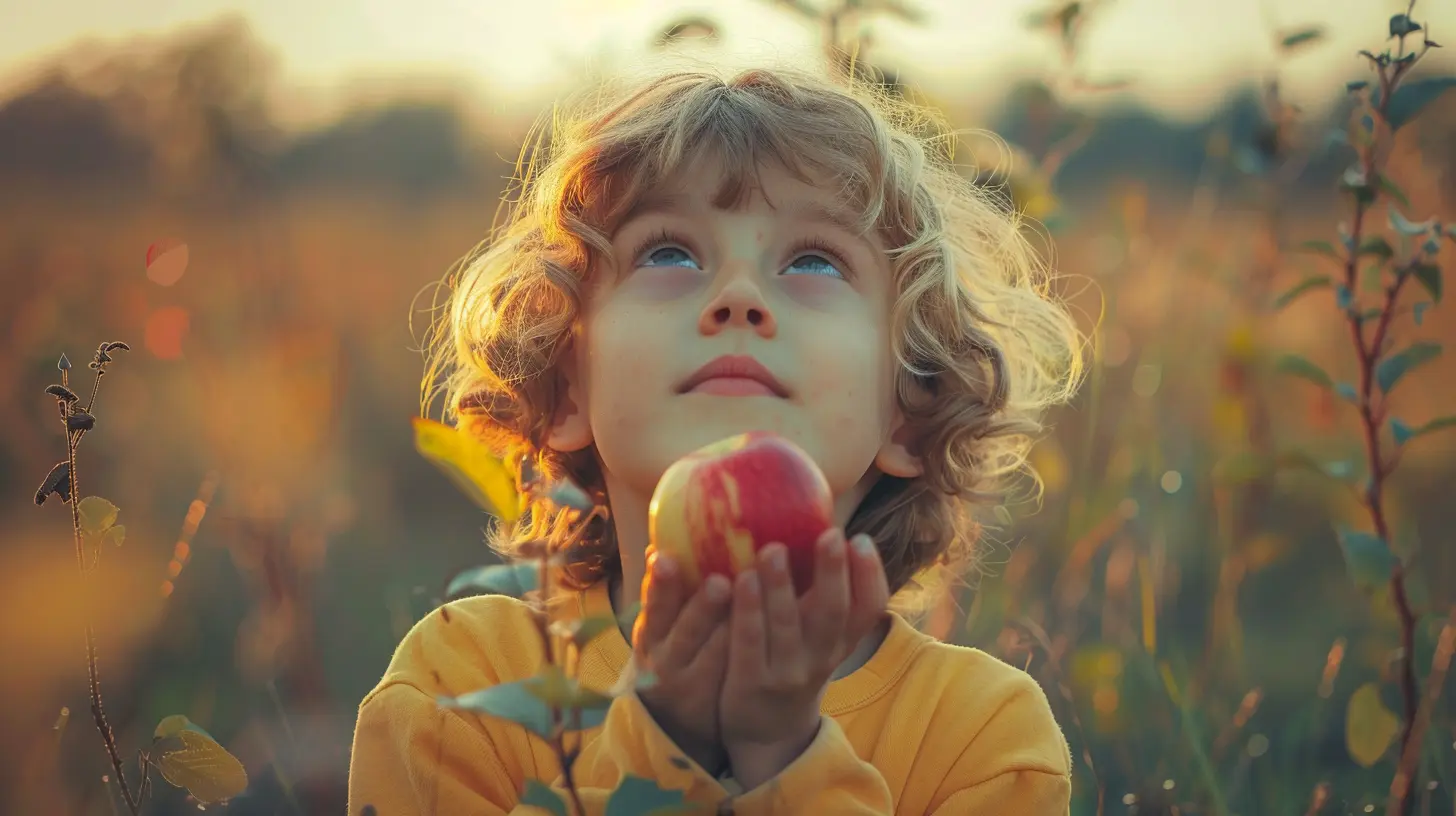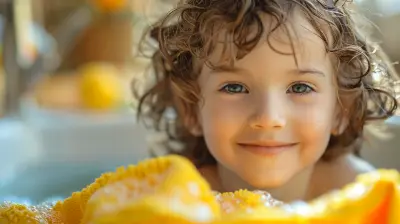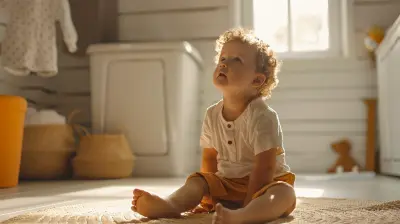Cultivating Gratitude: Raising Children Who Appreciate
8 October 2025
Gratitude—it's more than just remembering to say "thank you." It's a shimmer in the soul, a quiet strength that turns what we have into enough. In a world overflowing with distractions, instant gratification, and towering piles of stuff, teaching our children to appreciate the little things is not just a virtue—it’s a revolutionary act.

Why Gratitude Matters More Than Ever
Let’s face it: we’re raising kids in a Pinterest-perfect, Amazon Prime, one-click-away kind of world. Everything is faster, flashier, and more disposable. So, where does gratitude fit in? Right in the center, like the glowing core of a life well-lived.Grateful kids grow into grounded adults. Research shows that practicing gratitude improves mental health, deepens relationships, boosts empathy, and enhances overall happiness. Imagine a world where your child not only smiles when they unwrap a toy but also when they spend time helping a friend. That starts with you. That starts at home.

The Seeds of Gratitude Start Young
Babies don’t come programmed with a thank-you app. Gratitude is taught. It’s modeled. It's absorbed like sunshine in a garden—slow, steady, and life-giving. Your toddler may not pen a heartfelt thank-you note anytime soon, but those tiny expressions of appreciation begin with how we speak, listen, and respond.Think of each moment as planting a seed. A smile, a genuine compliment, a patient explanation—they’re all part of the soil where gratitude grows.

Let It Begin With You: Modeling Gratitude
You want your child to say thank you, but do you say it to them? When they help you pick up toys or bring you a crayon drawing, do you show sincere appreciation—or just mumble a distracted “good job”?Our kids are always watching. Scary, right? But also powerful.
Try this:
- Thank your partner out loud for making dinner
- Show appreciation when your child tries—even if they don’t succeed
- Express gratitude for small wins: a sunny day, warm socks, that first sip of coffee
When we wear gratitude like our favorite hoodie, they’ll naturally want one too.

Create a Daily Gratitude Ritual
Ever noticed how bedtime becomes the time your child wants to discuss the meaning of life? Or spill their feelings like a toppled cup of milk? That’s your golden window.You can:
- Do a “gratitude circle” at dinner: Everyone shares one thing they’re thankful for
- Start a family gratitude jar: Drop in notes of appreciation and read them together weekly
- Try a bedtime gratitude chat: “What made you smile today?”
It doesn’t have to be deep. "I'm thankful for pancakes" counts. These rituals slowly etch gratitude into their hearts, like water carving a canyon.
Teach the Beauty of Less
Children don’t need more toys, they need more meaning. (And let’s be honest—how many toys actually get played with?) Gratitude and abundance aren’t twins. Sometimes, the fewer the choices, the greater the appreciation.Here’s an idea: before birthdays or holidays, go through old toys and clothes together. Ask your child what they’d like to give away to someone who needs it. This acts as a beautiful reminder: giving feels good. And when they do receive something new, it’s in contrast to the joy of giving.
Use Words That Spark Appreciation
Gratitude is like a muscle—use it or lose it. And like any workout, it needs the right form. So when your child says "thank you," help them dig a little deeper.Instead of:
- Just “Thanks,” prompt them with, “What did you like about it?”
- Or after a gift, “Why do you think they gave you that?”
Turn appreciation into a conversation, not a checkbox.
Also, avoid over-praising. Shocking, right? But hear me out. Lavishing praise for every little thing dilutes its value. Instead, be specific and sincere:
- “Thanks for helping me carry the groceries—it made things easier for me.”
- “I appreciate how you shared with your sister. That was kind.”
When kids link their actions to real feelings, gratitude becomes more than manners.
Encourage Experiences Over Things
Think back to your fondest childhood memories. Chances are, they’re of moments, not objects. Time at the beach. Late-night laughter. Building forts in the living room.Exchange stuff for stories. Take them on nature walks. Try family game nights. Visit grandparents. Bake cookies together. These shared experiences shape how children view happiness—not as something to own, but something to feel.
Let Them Struggle A Little
This may sound counterintuitive, but stay with me.When life comes easy, appreciation is hard. If a child never hears “no,” they grow to expect “yes.” Let your child experience frustration. Let them wait. Let them work for things.
Whether it’s saving allowance for a new toy or waiting their turn, these challenges aren’t roadblocks—they’re ramps. Struggle, with your support, teaches resilience, which feeds contentment, which leads... yep, you guessed it—gratitude.
Practice Volunteerism as a Family
Seeing the world through other people’s shoes? That’s empathy—a close cousin of gratitude.Find small ways to make giving part of your family’s DNA:
- Donate blankets to an animal shelter
- Serve meals at a community kitchen together
- Make cards for hospital patients
As your child sees others' realities, their own blessings shine brighter. It's not about pity—it’s about perspective.
Celebrate the Little Wins
Gratitude doesn’t only live in grand gestures. It lives in simple, everyday moments.Celebrate that:
- The sun came out after three rainy days
- They remembered to clean up without being asked
- You got five minutes of silence (hallelujah!)
By noticing these little victories, your child learns that happiness isn’t found in someday—it's hidden in right now.
Be Patient, Be Present
Gratitude isn’t a switch. It’s a slow-growing tree that needs watering, light, and protection from life’s harsh weather.There’ll be whining. There’ll be days you wonder if anything’s sinking in. But stay the course.
Be present. Keep showing up. Keep modeling. Keep explaining, even when it feels redundant. Because every moment—every conversation, every hug, every boundary lovingly held—is teaching your child something.
You Can’t Force It, But You Can Foster It
Let’s be real. You can’t make your kids feel grateful. But you can create the kind of home where gratitude grows wild, like sunflowers in sunshine.It starts by choosing to see your own blessings. It continues by weaving that spirit into your routines, your words, and your actions. And it matures when your child, maybe one day during a quiet car ride or unexpected dinner, turns to you and says, “Thanks for everything, Mom.”
And in that moment? You’ll know it was all worth it.
Final Thoughts
Raising children who appreciate isn’t about raising "perfectly polite" kids. It's about nurturing humans who see beauty in the ordinary, who recognize the effort behind the gifts, and who carry a sense of wonder—even on tough days.Gratitude is a soft superpower, one that glows quietly inside. When we help our children tune into it, we give them a lifelong compass for joy, resilience, and connection.
So go ahead—plant the seeds. Water them with love. And watch as they grow into something extraordinary.
all images in this post were generated using AI tools
Category:
Life Skills For KidsAuthor:

Maya Underwood
Discussion
rate this article
1 comments
Clover Brown
Cultivating gratitude in children fosters empathy and resilience, essential skills for their emotional development and well-being.
October 12, 2025 at 2:38 AM

Maya Underwood
Thank you! I completely agree—nurturing gratitude in children is a powerful way to enhance their emotional growth and build essential life skills.


